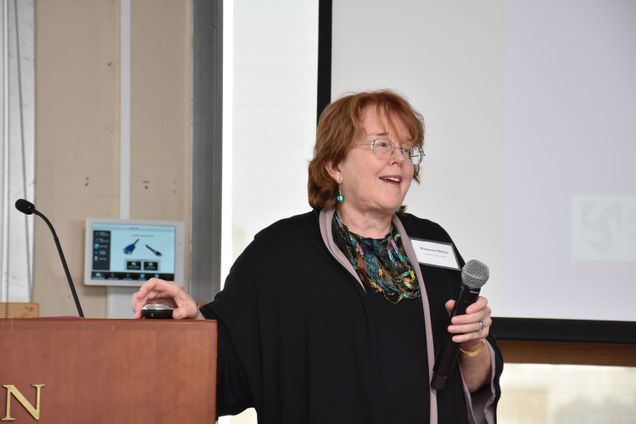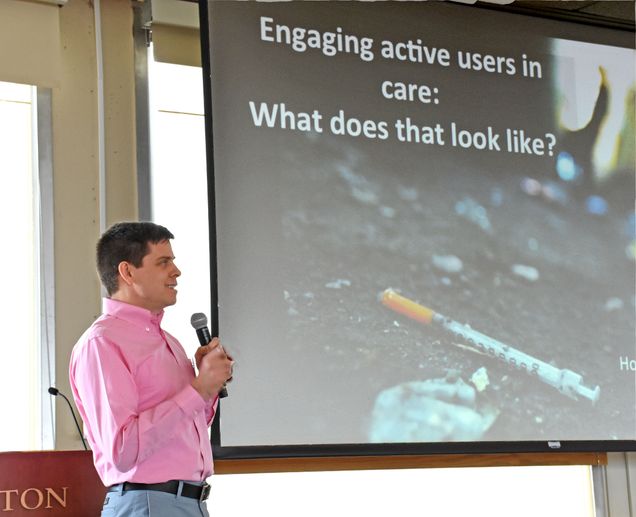Homeless Health Symposium Promotes Collaboration, Education, Awareness
Caring for the underserved is a core value shared by the BUSM community. For more than 20 years the Outreach Van Project (OVP), a group of students who provide basic necessities and care every week to the underserved community in East Boston, has been a concrete example of the roles that compassion and service play in the culture of the School.
On Saturday, Feb. 10, OVP students organized the inaugural “Homeless Health Symposium,” which included attendees and presenters from universities and organizations throughout New England.

Roseanna Means, MD, founder, president and CMO of Health Care Without Walls (HCWW) was the event’s first speaker. An internal medicine physician at Brigham and Women’s Hospital and associate clinical professor of medicine at Harvard Medical School with more than 30 years of experience in health care, she provided an overview of the issues, challenges and best practices of working with the homeless. “Caring for homeless individuals is challenging, but outreach projects such as BUSM’s OVP, make a huge difference,” Means said.
She noted that homeless women are underrepresented at clinics and face a greater challenge because of their unique biological needs (childbearing, menopause, etc.). Means wanted to dedicate herself to women’s health issues, which she has been doing since 1999 when she founded HCWW.
 Gabriel Wishik, MD, MPH, instructor of medicine at BUSM and a physician at Boston Health Care for the Homeless Program (BHCHP), discussed addiction in the homeless population. He provided recommendations for engaging with users and discussed some of the changes BHCHP has implemented, including naloxone availability, support groups, more access to behavioral health, and the monitoring of restrooms throughout the city.
Gabriel Wishik, MD, MPH, instructor of medicine at BUSM and a physician at Boston Health Care for the Homeless Program (BHCHP), discussed addiction in the homeless population. He provided recommendations for engaging with users and discussed some of the changes BHCHP has implemented, including naloxone availability, support groups, more access to behavioral health, and the monitoring of restrooms throughout the city.
After a networking lunch provided by iCater (a job training program at the Pine Street Inn), attendees participated in an OVP simulation. They were assigned roles, such as clients or van members. “Clients” would approach the tables (food, clothing, care) staffed with “van members.” Scenarios ranged from seeking food, needing legal advice, tackling language barriers and obtaining clothes for children.
Participants discussed their experiences as a group. Some noticed how easy it was to “fall into a silo,” focusing on only providing food or only providing clothes, when they could have asked the clients if there was anything else they needed; whereas others learned quickly you have to be flexible and your role may change as the clients’ needs do.
The final part of the symposium included group presentations, which included projects from:
- Homeless Health Immersion Experience (BUSM)
- House of Hope Community Development Corporation (Warwick, R.I.)
- Healthcare Alliance for the Homeless (Tufts)
- Worcester Free Clinic Coalition (UMass)
- Crimson Care Collaborative (Harvard)
To see photos from the event, check out the Facebook album.
View all posts